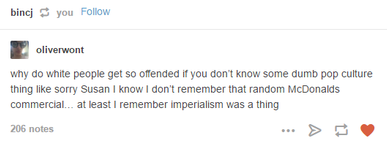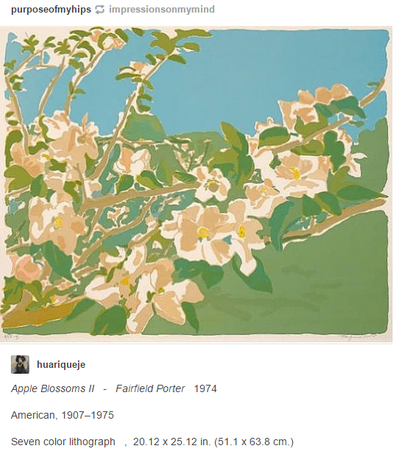Disclaimer: Article contains content that may be offensive or unsuitable for minors.
I came upon this artist while casually scrolling through my Tumblr feed one day. My dashboard is mostly filled with images like this: 
Or this:

Or this.
Generally, I see flowery art and people of color laughing about their frustrating experiences with white people. However, recently, I saw art that differed from the usual impressionism and abstraction that fills my Tumblr feed. I saw art with which I identified, and art that resonated with issues I face as a South Asian woman in America.

Ayqa Khan, a young, Pakistani-American woman living in New York, creates digital art with subjects who look like her, have similar interests, and defy conventional standards of beauty.
She includes women who have natural body hair, which subverts the regular expectations for women in many parts of the world, who shave their legs, armpits, pubic hair, arms and facial hair. She incorporates aspects of South Asian culture like the mango juice in the picture to the left, and patterns from the region on the skateboard. The image of Betty Boop with darker skin, more body hair and South Asian-style earrings shows a class of cultures that immigrants experience in this country.
My favorite aspects of this piece include the photo of Angela Davis on the wall and the Audre Lorde book sitting on the table. Black authors like these became extremely influential in my decolonization process, and I really appreciate seeing images of other South Asian women reading and valuing these activists.

Ayqa Khan also recognizes the general silence surrounding sexuality and sexual expression in the South Asian community. Most of my friends and I grew up treating sex as a taboo subject never to be discussed, even during our parents’ absence.
However, this piece to the right includes a dildo covered in coconut oil which normalizes masturbation and sexual activity for brown people, especially brown women. The handcuffs hanging on the coat rack also imply some kinky sexual habits, too. This piece includes some powerful juxtapositions of perceived traditional artifacts (e.g. coconut oil, cultural clothing) with sexualized objects, which challenges the hegemony of obligatory chastity.
While the first piece facilitated identification based on feminist politic, this second artwork displays openness in regards to sexuality and her ability to move through these cultural spaces fluidly. Both pieces include women with natural body hair.

Ayqa Khan’s electronic art accomplishes many goals: combining cultural spaces, subverting power, showcasing South Asian female sexuality, all while normalizing body hair. Her background as a Pakistani-American woman provides her with a broad range of experiences which contribute to her powerful, moving art. To learn more about her life, check out these interviews and follow her on Tumblr here.
The idea of “decolonizing our minds” is used in the writings of the author, feminist and social activist Bell Hooks. She encourages us to critically examine every thought and action, free ourselves from the coercive ideologies, and overcome the impacts of structural oppression. This monthly column will analyze spaces and times where and when we can pause and make strides in this arduous process, and also highlight figures who are helping us to decolonize ourselves.


